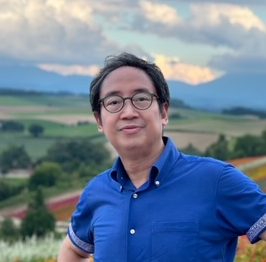

huanggwx[at]sophia.ac.jp
+81-3-3238-4667
Address:
Room 1619 Bldg No.2, 7-1 Kioi-cho, Chiyoda-ku, Tokyo, 102-8554 Japan
He deals with environmental problems in various approaches from field survey, statistical analysis and numerical modeling. His research strategy is a good combination of “seeds” and “needs”.
Environmental Assessment, Environmental Planning, Global Environmental Outlook
Born in Shanghai, graduated from Fudan University and obtained Ph.D from the University of Tokyo. Work experiences include Associate Professor at the Dept. of Civil Engineering, the University of Tokyo; Associate Professor at the Dept. of Civil Engineering, Kanazawa University; Associate Professor at the Dept. of Civil Engineering and Architecture, Niigata University; Associate Professor in Graduate School of Frontier Sciences, the University of Tokyo; Professor for an international education program at International Center for Water Hazard and Risk Management under the auspices of UNESCO. Career in Sophia started from Sep. 21, 2011.
My research activities over the past decade can be described as multidisciplinary and multi-scales. Lake eutrophication monitoring and modeling; sustainable use of wetland; river flow and water quality simulations, urban flood risk analysis and management, and long-term policy impact analysis as well.
I deal with environmental problems using various approaches from field survey, statistical analysis and numerical modeling. My research strategy is a good combination of “seeds” and “needs”. I firmly believe that environmental problems could not be solved unless we break the walls of conventional research fields. We must take integrated approaches to deal with the very complex and interconnected environmental issues. We need new concepts, new way of thinking, new tools, new value and ultimately new society.
It centers on environmental problems in rivers and lakes. In additional to in-class discussions, field-oriented exercise will be conducted and students are expected to take initiative. Students can gain basic skills in water quality measurement and numerical modeling, and develop better appreciation of the importance of nature conservation.